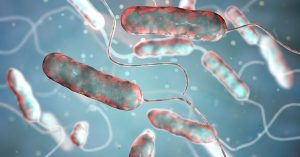 (Camden, NJ) – The Camden County Department of Health is working alongside New Jersey Department of Health to investigate a cluster of Legionnaires’ disease cases in Pennsauken.
(Camden, NJ) – The Camden County Department of Health is working alongside New Jersey Department of Health to investigate a cluster of Legionnaires’ disease cases in Pennsauken.
As of Dec. 16, four cases of Legionnaires’ disease have been reported in people who reside in Pennsauken. The disease is a type of pneumonia caused by bacteria called legionella.
“Right now, the overall risk of Legionnaires’ disease among residents or visitors to Pennsauken is low,” said Camden County Health Officer Paschal Nwako. “And most healthy people exposed to Legionella do not develop the disease. However, people over the age of 50, especially those who smoke cigarettes, or people who have certain medical conditions, including weakened immune systems, chronic lung disease or other chronic health conditions, are at increased risk for Legionnaires’ disease.”
The health department is recommending that residents of Pennsauken who develop respiratory symptoms such as a fever, cough, shortness of breath, muscle aches and headache visit their healthcare provider for further evaluation. It can take up to two weeks for symptoms to develop, so it is recommended that those who develop symptoms within two weeks of visiting or working in Pennsauken also seek medical attention.
NJDOH has alerted healthcare providers in the area and a laboratory test is required to determine if you are sick with Legionnaires’ disease.
“It’s important to emphasize that symptoms of Legionnaires’ disease are similar to those of COVID-19,” Nwako continued. “So, it is crucial for those who develop symptoms to seek help from a medical provider so they can provide a proper diagnosis. The good news is that Legionnaires’ disease is treatable with antibiotics, unlike COVID-19.”
Legionnaires’ disease is not spread person to person, instead it is contracted by breathing in small droplets of water containing Legionella bacteria. This water can come from cooling towers, like air-conditioning units for large buildings, hot tubs, cooling misters, decorative fountains and plumbing systems. Less commonly, people can get sick by aspiration of tap water containing Legionella, which happens when water accidently goes into the lungs while drinking. People at increased risk of aspiration include those with swallowing difficulties. Home air conditioning units do not use water to cool, so these home units do not aerosolize water and are not a risk for Legionella growth.
“This is a continuing investigation and we’re working closely with the state to identify where these individuals may have been exposed to the bacteria and we have taken all proper precautions to alert healthcare providers in the area,” Nwako said. “Although the cases occurred among residents of Pennsauken, the source of Legionella exposure could have been outside of this area. Any identified sources that are confirmed to have and be able to spread the bacteria will be remediated to prevent further transmission. These types of investigations are complex but we’re doing everything to identify the source of this cluster and keep everyone in Camden County safe and healthy.”
